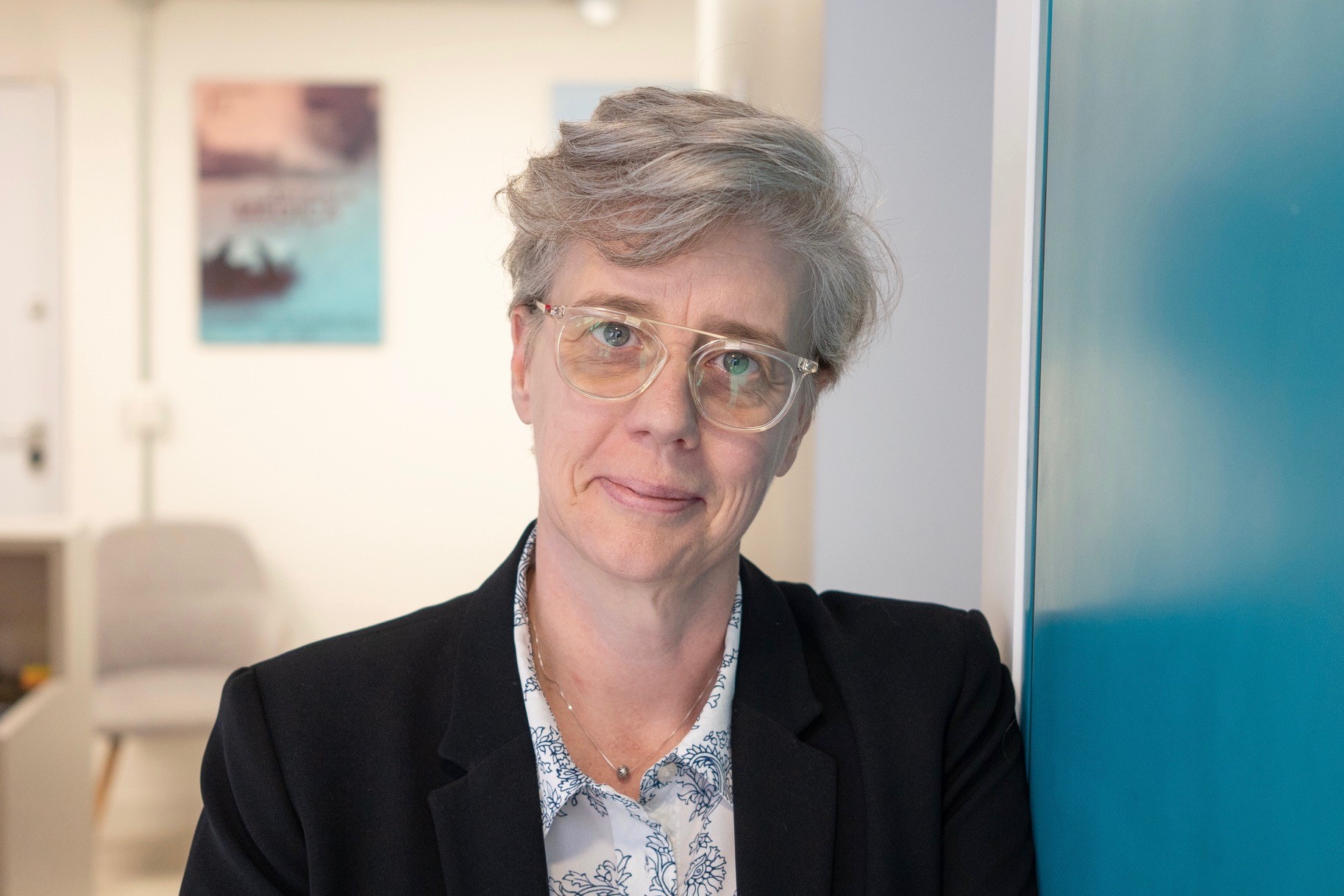
Valerie Dourdin is the Humanitarian Director for IPPF, with over 25 years experience in the humanitarian and development sectors. She is dedicated to expanding and developing sexual and reproductive health (SRH) services in emergency settings, ensuring access to lifesaving care. Valerie brings extensive expertise in leading humanitarian responses, advancing localisation, and bridging gaps between development and humanitarian efforts to strengthen healthcare and support survivors of gender-based violence in humanitarian crises.
Articles by Valerie Dourdin

Health Without Borders: Supporting Women on the World’s Deadliest Journeys
On this International Migrants Day, we speak with Valerie Dourdin, IPPF’s Humanitarian Director, about her recent visit to the Darién Gap, a perilous crossing linking South and Central America. With decades of humanitarian experience, Valerie highlights the hidden struggles women face on the move, and IPPF’s ambitious plans to deliver lifesaving sexual and reproductive healthcare (SRH) along key migration routes. With a focus on localisation and coordinated support, Valerie outlines a bold vision for ensuring the needs of women on the move are not forgotten. Can you start by telling us about your background and what brought you to IPPF? I have had the privilege to work for 15 years with the Red Cross, 10 years with the UN, and later with Save the Children, with experience across every continent. I was fortunate to work alongside strong local teams at every step of my career. They taught me how to do my job, and that experience shaped my understanding of effective, localised humanitarian work. My move to IPPF was inspired by my previous work in Colombia, where we ran a SRH clinic. Seeing the lifesaving importance of sexual and reproductive healthcare, and the difficulty of securing funding for it, drove me to continue this work. SRH isn’t a luxury, it’s critical for current and future generations, and IPPF provided an opportunity to address that gap globally, especially in humanitarian settings. Who are ‘people on the move’? ‘People on the move’ refers to individuals who are fleeing from conflict, violence, economic hardship or climate change. Many people on the move have simply run out of options in their home countries and are forced to leave in search of safety, opportunity, or survival. These journeys can be incredibly dangerous and take weeks, months, or even years. Without documents, people must take unofficial routes, crossing irregularly into countries, leaving them vulnerable to violence, exploitation, and trafficking. There are currently two major migration routes. The first is across Africa, where people travel north toward the Mediterranean. The second is in the Americas, where journeys often begin in Chile, Argentina, or Haiti, moving north through Colombia and Central America toward the US. Increasingly, people from Africa and as far as China are arriving in South America to follow this route. A critical and perilous passage in this region is the Darién Gap, a treacherous 70-mile stretch of dense jungle between Colombia and Panama. Women and families endure immense hardship on these routes, yet their stories of violence, exploitation, and survival are rarely heard. What was the aim of your recent visit to South and Central America? We wanted to better understand the current situation along migration routes, particularly in Colombia and the Darién Gap, and see how IPPF could scale up support for women and girls on the move, through our Member Association (MA) Profamilia, who are leading the response. Profamilia is a great organisation with decades of experience providing sexual and reproductive health (SRH) services in Colombia. They run over 50 clinics across the country and are well-respected for their work, including in emergency settings. During my visit, we discussed their plans to scale up mobile clinic services in key areas like Necoclí and Capurganá, where many migrants gather before attempting the difficult journey through the Darién Gap. These clinics offer SRH services like family planning, HIV and STI screening. I then travelled to Panama, where the Darién Gap ends, to meet with local and national organisations. My aim was to start building a network of coordinated SRH and particularly SGBV care, so that women have access to support both before they enter the gap and when they emerge on the other side. What did you witness in the Darién Gap, and how are women impacted? The Darién Gap is one of the most dangerous border crossings of the Americas migration route in the world and is controlled by armed criminal groups. For families making the journey, it can turn into a nightmare. Rivers rise without warning, people get lost in the thick forest, and many disappear without a trace. A fit young man might cross in five days, but for mothers with small children, it can take 10 to 15 days or more. When I visited two years ago this route was starting to pick up, in 2023 around 600,000 people attempted the crossing. This year, it has dropped significantly to around 230,000, but what struck me was the increased desperation. You now see many lower-income families, with less access to resources and information. Many families sell everything to pay smugglers only to be ripped off, so they’re stuck in places like Necoclí for weeks or months. Women told me they had nothing left to go back to, so they had no choice but to push forward. I saw mothers with newborn babies in their arms about to start the journey. I spoke to a young child and asked her where she was going, she smiled and said, “To the beach.” Parents do their best to protect their children but can’t prepare them for the unimaginable ordeal ahead. Two years ago, the jungle was impenetrable. Now, there are some rudimentary paths, but it’s still extremely muddy, dangerous, and slow. You see families starting their journey loaded with a heavy backpack, but by the time they reach Panama, they have absolutely nothing. Reports revealed that approximately one in three women making the crossing experienced sexual violence on the route, and over half had been robbed.









